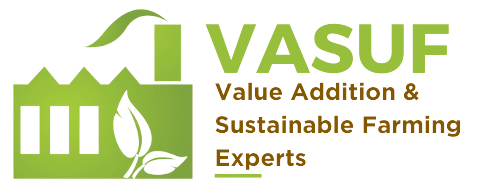In recent years, Kenya has emerged as a front-runner in sustainable agriculture, adopting innovative techniques that not only prioritize environmental conservation but also generate added value for farmers. Through value-added sustainable farming practices, Kenyan farmers are transforming the agricultural landscape, promoting food security, and contributing to a greener future through:
- Embracing Organic Farming: Kenyan farmers have recognized the significance of organic farming in promoting sustainability and safeguarding public health. By adopting organic practices, such as crop rotation, natural pest control, and composting, farmers minimize the use of synthetic chemicals, reducing water pollution and preserving soil fertility. Additionally, organic produce commands higher prices in local and international markets, offering farmers an opportunity for increased income and a competitive edge.
- Value-Added Processing : Value-added processing is another vital component of sustainable farming in Kenya. Rather than simply selling raw produce, farmers are leveraging processing techniques to create higher-value products. For instance, fruits can be transformed into jams, juices, and dried snacks, while grains can be milled into flour or used for making cereals and snacks. By adding value to their products, farmers can reduce post-harvest losses, extend shelf life, and access new markets. Moreover, processing activities often provide employment opportunities, particularly for women and youth, contributing to rural development and poverty reduction.
- Sustainable Livestock Management: Livestock farming plays a significant role in Kenya’s agricultural sector, and a shift towards sustainable practices is essential for long-term viability. Farmers are adopting practices such as rotational grazing, agroforestry, and the use of biogas digesters to manage livestock waste. These practices not only minimize soil erosion and water pollution but also generate renewable energy and organic fertilizers. Additionally, innovative techniques like hydroponic fodder production are being embraced, allowing farmers to feed their livestock efficiently while conserving water and reducing land requirements.
Value-added sustainable farming in Kenya holds immense promise for the future. By embracing organic farming, value-added processing, and sustainable livestock management, farmers are not only protecting the environment but also diversifying their income streams and enhancing the resilience of their agricultural systems. These efforts are a testament to Kenya’s commitment to building a greener, more sustainable future for its farmers and the nation as a whole.


